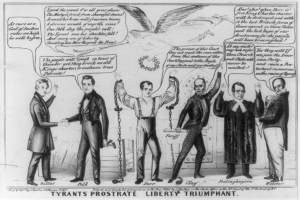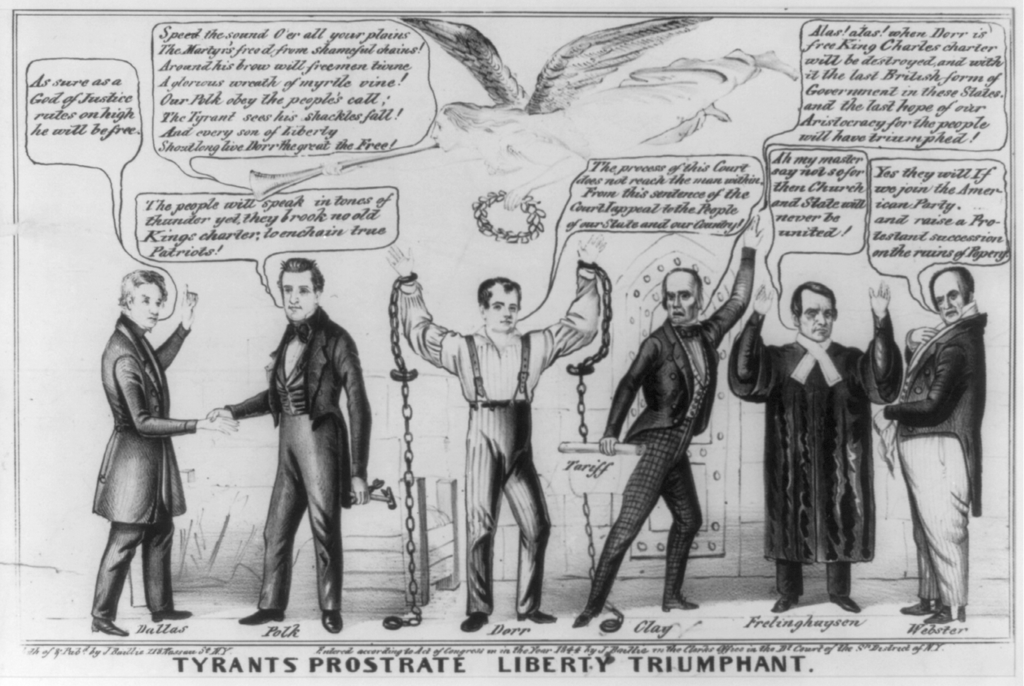
Just this month, several members of the Cranston Board of Canvassers resigned from their positions rather than approve the provision of an absentee ballot to convicted murderer Michael Woodmansee, who last year committed himself to a local institution serving the mentally ill. This is not the first time that a member of Cranston’s board has sought to prevent voting by residents of the facility, and this is certainly not the first time that Rhode Island has entered the spotlight on the subject of voting rights and voter enfranchisement. In fact, Rhode Island has had a particularly strange and convoluted history on these issues.
Voting Rights of Convicted Felons
Eight years ago, Rhode Island voters made history when they passed a referendum to fully restore the voting rights of convicted felons released from prison. At the time, this decision was virtually unheard of – only Maine and Vermont guaranteed voting rights to convicted felons. Today, those two states continue to be the national outliers. Although other states have followed Rhode Island’s lead in restoring the voting rights of formerly incarcerated people, Maine and Vermont continue to be the only states that allow currently incarcerated people to vote.
Redistricting Policy and Prisoner Counts
Of course, even in states like Rhode Island, where convicted felons remain barred from voting, there are ways of making local representatives more responsive to the needs of prisoners and their home communities. To this end, New York recently passed a law requiring that prisoners be counted for redistricting purposes as residents of their home communities, not the communities in which they are incarcerated. Rhode Island House Bill 7090, sponsored in 2012 by Representative Anastasia Williams and Senator Harold Metts, would have had a similar effect in Rhode Island, but the bill never left the committee in which it was drafted.
Voter Identification at the Polls
Senator Metts (D – District 6, Providence) has a strong history of supporting equity-based legislation, most recently for homeless individuals in Rhode Island. But that’s probably not where you’ve heard his name before.
In a strange twist, it was Senator Metts who introduced Rhode Island’s 2011 voter I.D. law. The law – which requires that in-person voters present government photo identification at the polls starting in 2014 – was supported by 27 out of 38 RI State Senators (6 of whom voted against and 5 of whom did not vote) and 51 out of 75 RI State Representatives (22 of whom voted against and 2 of whom did not vote).
In his public statements on the subject, Senator Metts has been careful to recognize the challenge of educating voters about the new requirements. However, he has argued that because a) his constituents, including Black and Latino voters, support anti-voter-fraud legislation, b) “you need an I.D. for just about everything today”, c) the law includes protections for voters without government ID (provisional ballots and free voter ID cards), and maybe even because d) he himself identifies “as a minority citizen and a senior citizen,” he was in the right on supporting a law that risks disenfranchising large sections of Rhode Island’s citizenry. But as long as 11% of voters nationally lack government identification, such arguments may not qualify as a particularly strong defense.
It’s not clear to me how effectively voter ID cards are being distributed to the most vulnerable populations of voters (or even what that process looks like), but the law itself does provide some level of detail on how provisional ballots will be assessed. Specifically, the law assigns responsibility to a local board of elections for “examin[ing] each provisional ballot application to determine if the signature matches the signature on the voter’s registration.” Let’s just hope they’re all handwriting experts.
Isn’t Rhode Island a Majority-Democrat State?
In fact, many people have argued that Rhode Island’s Democrats more closely resemble Republicans, particularly on social issues, than members of their own party nationally. For example, of all the states passing voter ID laws in the last few years, Rhode Island is the only one that was advanced primarily by a Democratic legislator with mostly Democratic support. Interestingly, Senator Metts, who is up for re-election next month, is running against a Republican candidate with a more socially liberal platform than his own. Unlike Metts, Russ Hryzan, an IT professional, supports both marriage equality and women’s reproductive rights.
Ultimately, even as Democrats and Republicans nationally are trending towards greater polarization and homogeneity of opinion, Rhode Island remains a unique exception to the rule. But when it comes to supporting the enfranchisement of its most under-served populations, it seems that Rhode Island is just like the others.
